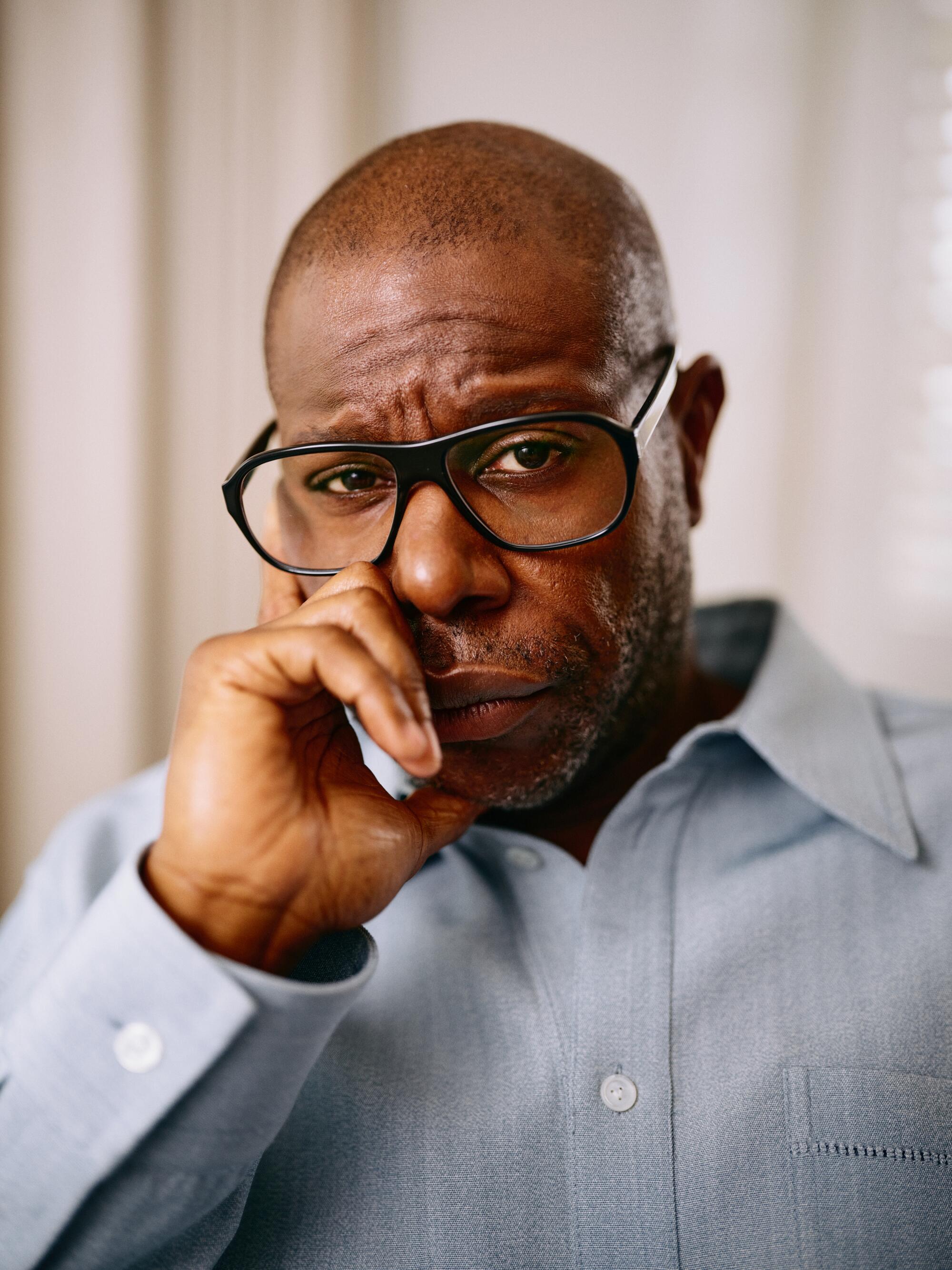For British director Steve McQueen, the previous isn’t value dramatizing except it might probably illuminate the current, so when he makes movies steeped in historical past — whether or not it’s “12 Years a Slave” or his World Battle II epic “Blitz” — he’s asking audiences to evaluate the place we are actually in relation to what’s occurred earlier than.
“You measure yourself on where we’ve been, where we are and how far we need to go,” says McQueen. “It’s also, for me, who’s left out of these stories, and who has the upper hand to tell these stories.”
It’s why “Blitz,” set in London throughout Nazi Germany’s cataclysmic bombing of the town, facilities on the attitude of a munitions manufacturing unit employee (Saoirse Ronan) and her mixed-race son (newcomer Elliott Heffernan), slightly than a person on the entrance strains or within the corridors of energy. Whereas conducting analysis for “Small Axe,” his 2020 anthology of movies about resilience within the metropolis’s West Indian neighborhood, McQueen had come throughout {a photograph} of a Black boy on a prepare station platform awaiting evacuation in the course of the Blitz.
“I thought, ‘That’s an in,’” he recollects. The image impressed the story about younger George Hanway’s journey house after leaping the prepare, encountering features of British society — constructive and adverse — alongside the way in which. “We confront things through his eyes,” he says. “It’s not ‘Oliver Twist.’”
George’s single mother makes bombs and tries to do finest by her bullied son and her father (Paul Weller), who lives with them. McQueen needed to point out who ladies actually have been then, outdoors of the traditional representations of family members ready and crying. The analysis bore that story out too. “You’ve never seen these images before, where women are the physical and emotional backbone of the war effort,” he says. “They were supplying ammunition, looking after elderly parents, evacuating their kids.”
McQueen noticed “Blitz” as a narrative of affection, with the bond between mom and little one central to the story. “Their chemistry was real,” he says of the rapport between Ronan and Heffernan, noting that the previous little one actor took the first-timer underneath her wing. “They loved playing together.” Add rock musician Weller, performing for the primary time at 66, and the trio cast a formidable onscreen household and off-camera bond. “They wouldn’t stop having fun. I was thinking, ‘Goodness, I wish that was my family.’ There was no hierarchy. It was beautiful.”
(Marcus Ubungen/Los Angeles Instances)
When did he know Heffernan, found after a extensively forged internet for the position, was the perfect George? “Day 1, his stillness,” McQueen says. “It was a silent movie star quality. You look at him, and you want to know more. He holds your gaze.” Working with the teen, he says, fostered a means of filming that was attuned to what Heffernan may do as a lot as what McQueen may need. “You have to be sensitive, because he has that energy of, ‘What is he looking at? How is he reacting?’ Sometimes, as a director, you’ve got to get out of your own way. You feel it, smell it, allow it to happen.”
Diligent analysis went into each facet of “Blitz,” from the precise music being carried out on the swanky Café de Paris when it was bombed to the harrowing flooding of a subway station, to a scene in a shelter depicting a protest in opposition to bigotry that stemmed from an actual incident. However the film displays components of McQueen’s life too. The unique music “Winter’s Coat,” sung by Ronan’s Rita at her manufacturing unit for a radio broadcast, is a nod to his late father.
“When he died 18 years ago, he left me his winter coat,” says McQueen, who wrote the music with Nicholas Britell and Taura Stinson. “I wanted the idea of absence and presence, where putting on the coat is like an embrace, where you’re feeling the warmth of that person’s body.”
Nothing was extra private, nevertheless, than George’s resolution to leap from a shifting prepare certain for an unknown vacation spot. “His narrative was laid out for him, but he defied it, and it changes his life, and that’s what happened to me,” says McQueen, who as a schoolboy skilled the sort of institutional racism that might have marked his life for failure if he’d let it. “Everything is, in some ways, finding your way home, self-determination.”
McQueen remembers being taught in regards to the Blitz at school, and its significance to Britain’s sense of self. He hopes “Blitz” honors that historical past by widening the image to be extra truthful about who populated the nation. “A lot of our identity is based on that, it being our ‘finest hour,’” the director says. “What was our finest hour? Well, a lot of people contributed to that who have been erased from that history. They’re ghosts, and I need to illuminate them. I need to give them a platform. How could I not? The multiculturalism of London at that time, there’s an amazing complexity to that landscape, so rich, so textured and visually dynamic.
“For a filmmaker, it’s gold.”




